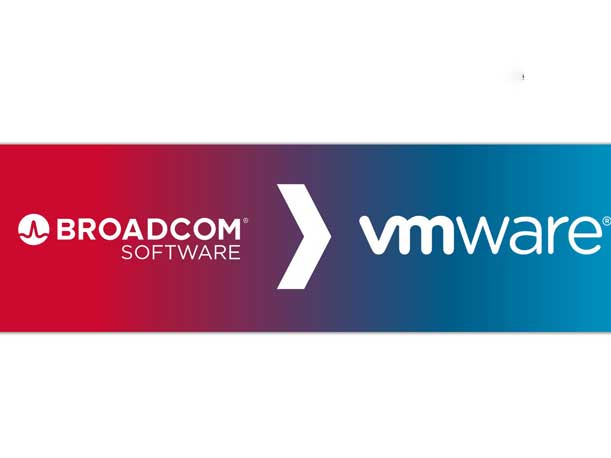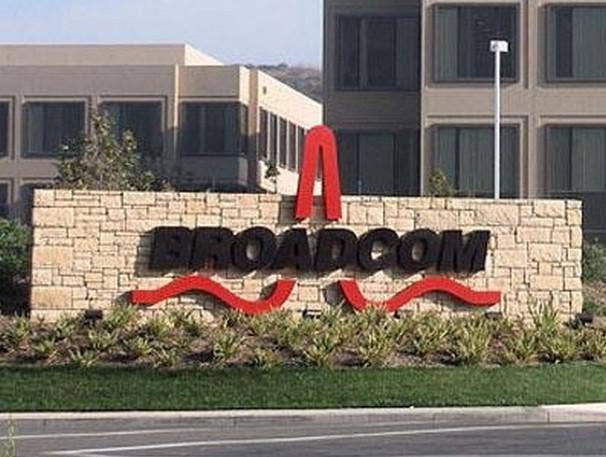Broadcom, VMware Push ‘Outside Date’ To May; Close-By Date Is Unchanged
The move, which was announced last week in a filing, gives Broadcom and VMware more days—until May 26—to walk away from the deal.

The wedding date hasn’t moved between Broadcom and VMware, but with no certain end to regulatory scrutiny in the U.S., the European Union and the U.K., both companies extended the deadline to walk away from the deal.
The planned $61 billion merger between the Palo Alto, Calif.-based virtualization all-star and the San Jose, Calif.-based chip-making giant was unveiled May 26. The sides had nine months from that date to walk away from the deal, which is known in the industry as an “outside date.” On Feb. 17, a week before reaching that outside date, VMware filed a notice with the U.S. Securities and Exchange Commission that both it and Broadcom had agreed to extend the deadline by 90 days.
“Together with VMware, we have agreed to extend the Outside Date in our merger agreement to May 26, 2023, which is common for a transaction of this size,” a Broadcom statement read. “We are continuing to make progress with regulatory authorities around the world, and we continue to expect the transaction to close in Broadcom’s fiscal year 2023.”
VMware said nearly the same in a statement it provided to CRN.
“We agreed to extend the Outside Date in our merger agreement from February 26, 2023 to May 26, 2023, which is common for a transaction of this size. We continue to expect the transaction to close in Broadcom’s fiscal year 2023,” VMware’s statement read.
The mega merger has set off alarms for regulators around the world. The EU has said it is concerned that Broadcom could use its ownership of the virtualization pioneer to limit or turn off competitors’ access to VMware.
Meanwhile in the U.S., the Federal Trade Commission has been engaged in a stringent “second request” investigation of the merger since July. In a statement to CRN, the FTC declined to provide an update on the investigation.
In a proxy filing this week, Broadcom asked shareholders to approve the direction of the company as well as compensation for its leaders, but offered no futher details on the deal’s progress.
Here are five things to get you caught up on what’s going on with the deal.

The European Investigation
The European Commission began its formal look at the Broadcom deal in November. After 30 days it escalated its investigation into what’s known as a “Phase 2” inquiry.
Margrethe Vestager, executive vice president in charge of competition policy at the European Commission, wrote in December that regulators were concerned Broadcom may restrict competition in the market for hardware components that interoperate with VMware’s software.
Specifically, authorities were worried Broadcom could use its ownerhip to hinder the development of SmartNICs by other providers.
“In 2020, VMware launched Project Monterey with three SmartNICs sellers (Nvidia, Intel and AMD Pensando). Broadcom may decrease VMware’s involvement in Project Monterey to protect its own NICs revenues,” Vestager wrote. “This could hamper innovation to the detriment of customers.”
In addition, regulators fear Broadcom could be bundling VMware’s virtualization software with its own software and no longer offer VMware’s virtualization software as a stand-alone product, “reducing choice and potentially foreclosing rival software providers.”
In December, the commission set a deadline to deliver a finding by May, but it extended that to July of this year.

The U.S. Investigation
The FTC began investigating the Broadcom-VMware deal shortly after it was announced. In July, Broadcom disclosed that the agency had escalated the probe to a more stringent second request. Since then the deal has languished inside that bureaucratic purgatory, unable to leave or move forward without satisfying the FTC’s demands.
The FTC has a 30-point framework it uses to evaluate deals that are escalated to this phase, and there is little wiggle room, according to Christopher Wall, HaystackID’s data protection officer and special counsel for global privacy on the Client Services team.
“The second request is essentially a broad subpoena-like request that asks for documents and written responses to interrogatories to help the FTC assess the competitive effects of the transaction and determine whether the deal will be good for consumers,” he said.
Wall, who worked as a lawyer in anti-trust and trade regulation for years before becoming a forensic investigator, said while it’s difficult to tell if a deal is in trouble from the outside, there are ways to measure it.
“The most obvious sign is that the parties are taking longer than normal (significantly more than 90 days or so) to substantially comply with the second request,” Wall wrote to CRN in an email. “The longer they take to comply, the more negotiations can happen with the FTC, so the length of time it takes for substantial compliance isn’t necessarily a bad sign—just that it’s more complicated than a plain vanilla deal.”
In a statement to CRN, the FTC declined to provide an update on the investigation.

The U.K. Investigation
The U.K.’s own competition authority is taking a look at the deal as well.
The Competition and Markets Authority (CMA) said on Jan. 25 it had started its initial investigation of the Broadcom-VMware merger. However, it could be more than a month until U.K. authorities determine whether to escalate the inquiry.
“The deadline for the CMA to announce its decision whether to refer the Merger for a Phase 2 investigation is therefore 22 March 2023,” the board wrote in a statement on its website.

Broadcom’s Biggest Owners
The biggest owner of Broadcom is Capital Investors funds, which control 19.7 percent of the company, spread out over three funds: Capital International Investors, Capital World Investors and Capital Research Global Investors. Combined, the three funds share not just office space in Los Angeles, but 91.8 million shares of Broadcom worth $12.8 billion as of noon on Tuesday, Feb. 21.
Runner-up is the Vanguard Group, which has 39.0 million shares for a 9.4 percent interest, followed by BlackRock, which owns 29.4 million shares, about 7 percent of the company.

What Happened To Broadcom Software President Tom Krause?
When Broadcom unveiled the deal in May, it placed CEO Hock Tan and Broadcom Software Group President Tom Krause front and center as the two leaders driving the merger.
Fifty days later, Krause left Broadcom and the deal to take over as CEO of Citrix/Tibco, which competes with VMware in places.
Broadcom’s proxy filing mentions Krause’s resignation multiple times, disclosing along the way that when Krause left suddenly to take the job at Citrix/Tibco he abandoned several forms of cash compensation.
“Mr. Krause did not receive any severance or bonus payments and forfeited all outstanding, unvested equity awards in connection with his resignation,” Broadcom wrote. In addition, Krause walked away from performance bonuses that would have at least doubled his $715,000 salary in 2022.
Citrix/Tibco became Cloud Software Group once it was taken private.